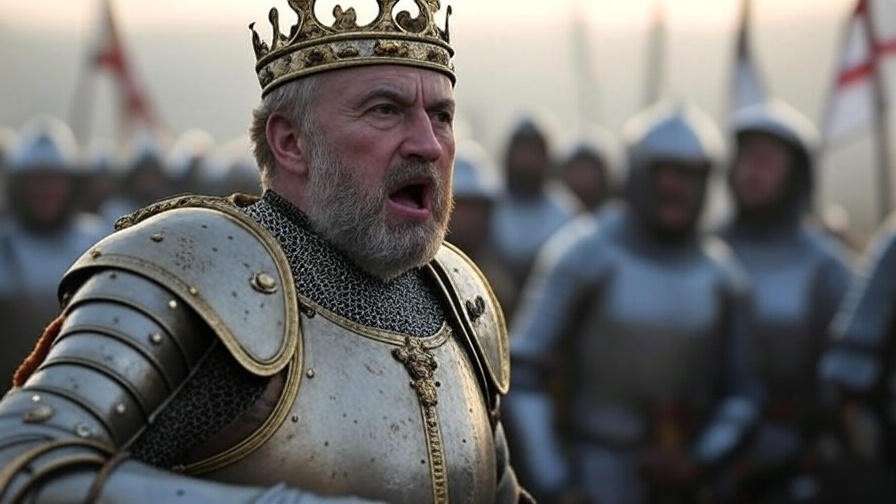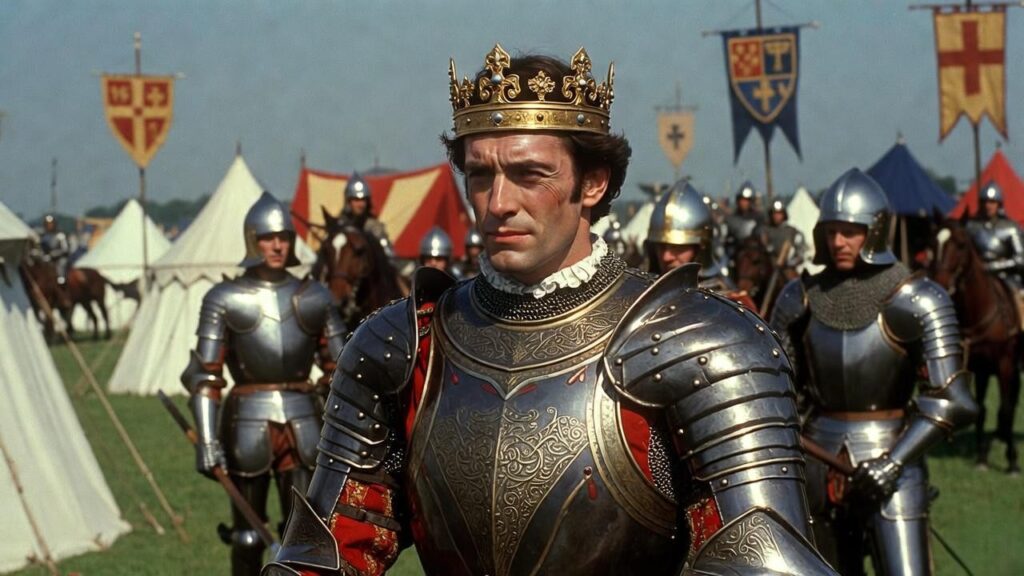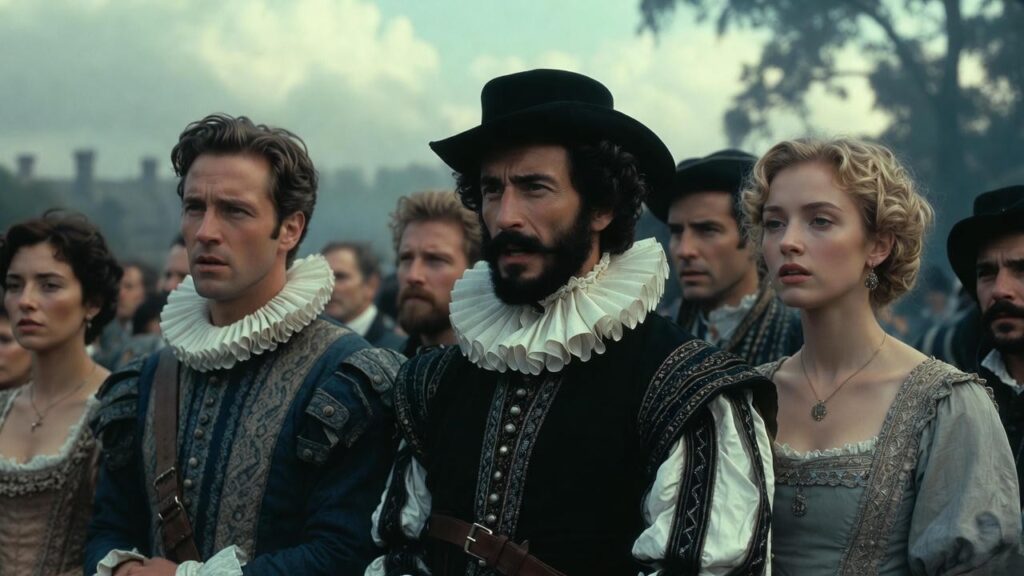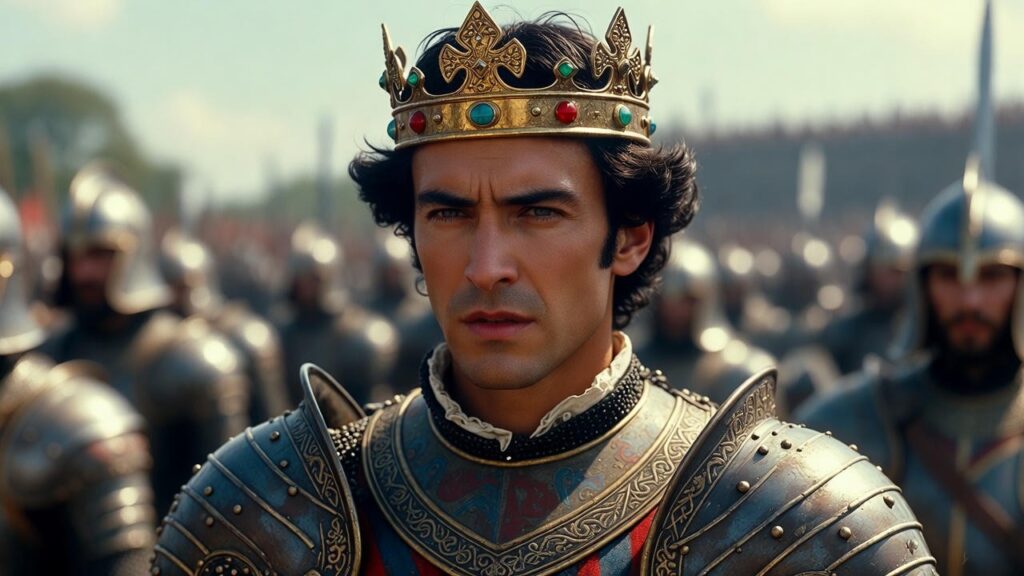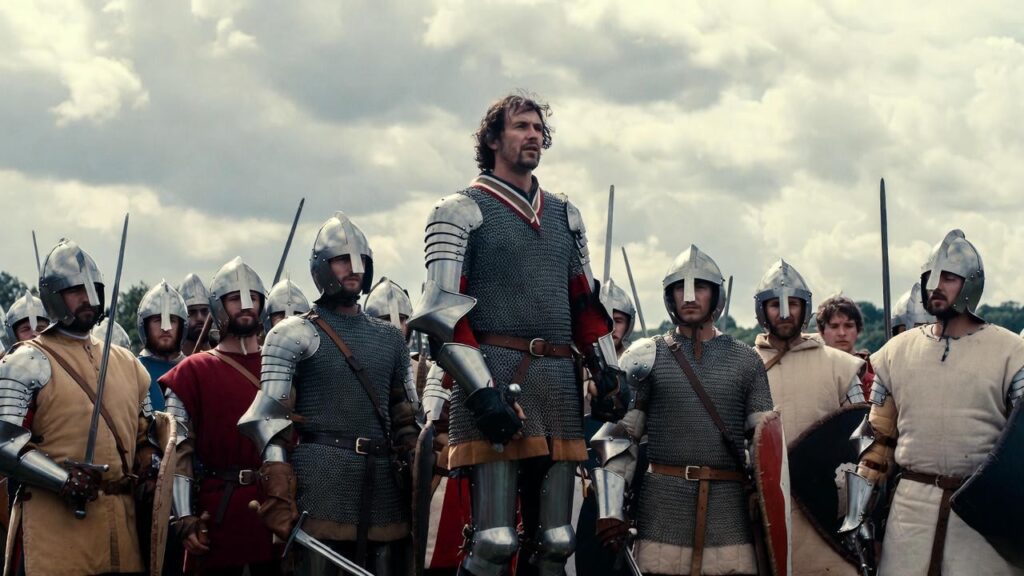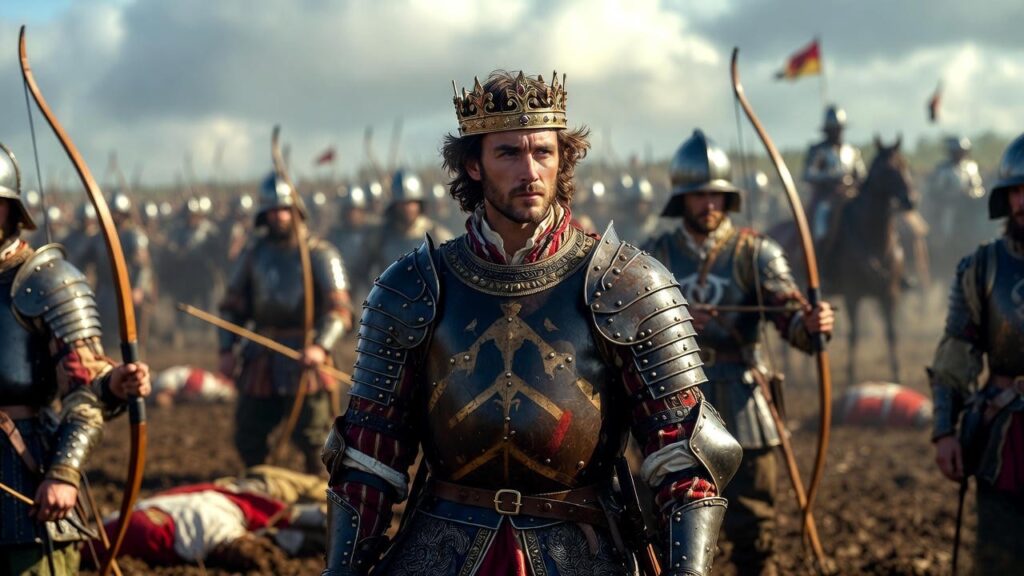Picture the muddy fields of Agincourt, 1415, where a young English king rallies his outnumbered troops with words that echo through centuries: “We few, we happy few, we band of brothers.” This is the heart of Shakespeare’s Henry V book, a masterpiece of history, leadership, and human conflict that continues to captivate readers and audiences worldwide. Whether you’re a student diving into the Henry V book for the first time or a seasoned Shakespeare enthusiast seeking deeper insights, this guide unlocks the play’s rich layers. Drawing on scholarly analysis, historical records, and modern interpretations, we explore the themes, characters, and enduring relevance of Henry V to offer you a comprehensive resource that informs and inspires.
As a cornerstone of Shakespeare’s Henriad, Henry V blends historical drama with profound reflections on leadership, war, and national identity. This article addresses the search intent behind the Henry V book by providing a detailed analysis, practical reading tips, and connections to modern adaptations, ensuring you gain both understanding and appreciation. With insights from historians like Ian Mortimer and literary critics like Harold Bloom, this skyscraper-level guide aims to surpass existing content, delivering unmatched value for Shakespeare lovers.
Understanding the Henry V Book: An Overview
What Is Henry V?
William Shakespeare’s Henry V is the final play in his Henriad tetralogy, following Richard II, Henry IV, Part 1, and Henry IV, Part 2. Written around 1599, it chronicles the rise of King Henry V, from his youthful days as Prince Hal to his triumphant leadership during the Hundred Years’ War. The play centers on Henry’s campaign in France, culminating in the improbable victory at the Battle of Agincourt. Through stirring speeches, complex characters, and a mix of humor and tragedy, Shakespeare crafts a narrative that is both a patriotic epic and a nuanced exploration of power and morality.
The Henry V book is not just a historical recount; it’s a meditation on what it means to lead, unite, and wage war. Its blend of political intrigue, battlefield heroics, and personal transformation makes it a standout in Shakespeare’s oeuvre, appealing to readers interested in history, leadership, or literary artistry.
Why Henry V Matters Today
Why does a 400-year-old play still resonate? Henry V tackles timeless themes: the burdens of leadership, the cost of war, and the forging of national identity. Its iconic speeches, like the St. Crispin’s Day address, inspire modern leaders and communicators. The play’s exploration of moral ambiguity—such as Henry’s decisions to execute prisoners—sparks discussions relevant to today’s ethical dilemmas in politics and conflict.
Modern adaptations keep Henry V alive. Kenneth Branagh’s 1989 film brought gritty realism to the text, while Netflix’s The King (2019), starring Timothée Chalamet, reimagined Henry for a new generation. These interpretations highlight the play’s adaptability, making it a vital study for anyone interested in Shakespeare’s history plays or their cultural impact.
Historical Context of Henry V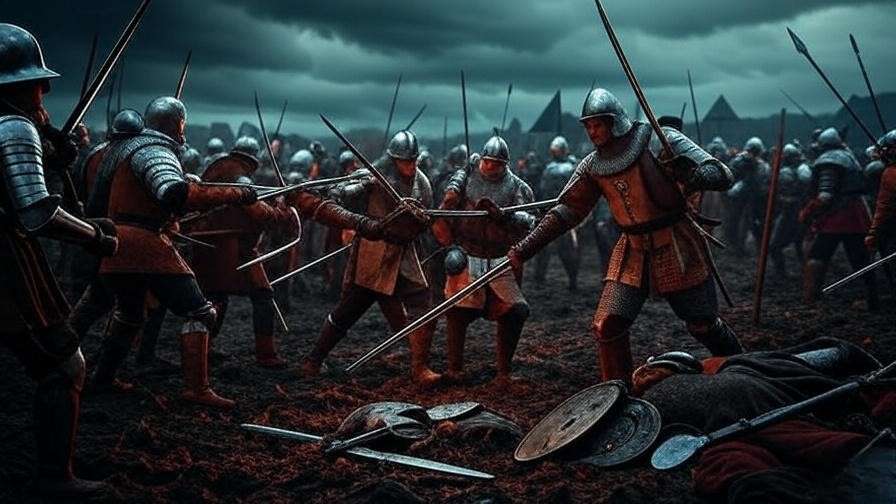
The Real King Henry V
To fully appreciate the Henry V book, understanding its historical roots is essential. King Henry V ruled England from 1413 to 1422, a pivotal figure in the Hundred Years’ War against France. His most famous victory, the Battle of Agincourt in 1415, saw a small English army defeat a much larger French force, cementing his legacy as a military genius. Historian Ian Mortimer, in 1415: Henry V’s Year of Glory, details Henry’s strategic brilliance and personal piety, which Shakespeare amplifies in the play.
However, Shakespeare takes liberties with history. The play compresses events and exaggerates Henry’s heroism for dramatic effect. For instance, the historical Henry was more pragmatic than the play’s idealized king, often making ruthless decisions to secure power. Comparing the Henry V book to historical accounts helps readers distinguish fact from fiction, enriching their understanding.
Shakespeare’s England and the Play’s Creation
Written during the reign of Elizabeth I, Henry V reflects the political climate of 1599 England. The nation faced threats from Spain and internal divisions, making a play about unity and triumph timely. Shakespeare’s Chorus explicitly calls for national pride, urging audiences to imagine England’s past glories. This patriotic tone resonated with Elizabethan audiences, who saw parallels between Henry’s leadership and their queen’s efforts to unify a fractious nation.
The play also served as propaganda, celebrating English identity while subtly questioning the costs of war. By situating Henry V in its Elizabethan context, readers can better grasp Shakespeare’s intentions and the play’s layered commentary.
Key Themes in Henry V
Leadership and Kingship
At its core, Henry V is a study of leadership. Henry evolves from the reckless Prince Hal of Henry IV into a king who inspires loyalty through charisma and decisiveness. His “St. Crispin’s Day” speech, delivered before Agincourt, is a masterclass in motivational rhetoric: “We few, we happy few, we band of brothers; / For he to-day that sheds his blood with me / Shall be my brother.” These lines unite his men, transcending class divides and galvanizing them for battle.
Henry’s leadership is not flawless, however. His decision to disguise himself and mingle with soldiers reveals his need to understand their perspective, but it also exposes his insecurities. Literary critic Harold Bloom praises Henry’s complexity, noting that his blend of charisma and calculation makes him one of Shakespeare’s most compelling protagonists. For modern readers, Henry’s leadership offers lessons in inspiring teams and navigating high-stakes decisions.
War and Morality
The Henry V book does not shy away from war’s dual nature: glorious yet devastating. Shakespeare celebrates the valor of Agincourt but also depicts its human toll, such as the death of young soldiers and Henry’s order to execute French prisoners. These moments force readers to question the morality of war, a topic as relevant now as in 1599.
The play’s moral ambiguity is evident in Henry’s justifications for invading France. He claims divine right, yet his actions stem from political ambition. This tension invites readers to debate the ethics of leadership and conflict, making Henry V a rich text for exploring contemporary issues like just war theory.
National Identity and Unity
Henry V portrays England as a unified nation, despite its diverse characters—Welsh Fluellen, Scottish Jamy, Irish Macmorris, and English commoners like Pistol. The play’s emphasis on camaraderie, especially in the “band of brothers” speech, fosters a sense of collective identity. Yet, Shakespeare subtly critiques nationalism by showing the personal costs of unity, such as Falstaff’s rejection and death.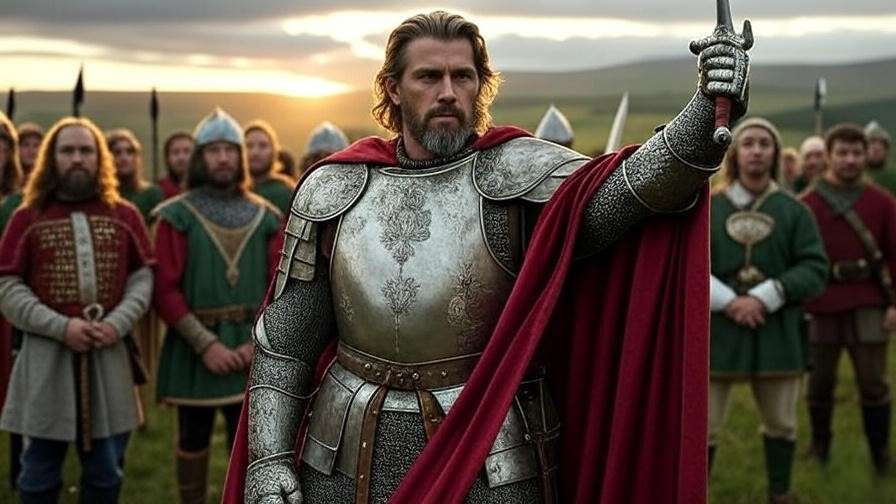
For modern readers, this theme resonates in discussions of national identity and multiculturalism. The play’s portrayal of unity amid diversity offers insights into building cohesive communities, a pressing issue in today’s globalized world.
Character Analysis
King Henry V
Henry V is one of Shakespeare’s most dynamic characters, evolving from the wayward prince of Henry IV to a resolute king. His strengths—charisma, strategic thinking, and rhetorical skill—shine in moments like his rousing speeches and diplomatic negotiations with France. Yet, his flaws, including ruthlessness and manipulation, add depth. For example, his rejection of Falstaff and execution of old friends like Bardolph reveal a pragmatic streak that borders on cruelty.
Analyzing Henry’s interactions with his soldiers, such as his disguised conversations before Agincourt, highlights his desire to connect with his men while maintaining authority. This duality makes Henry a fascinating study for readers interested in leadership and character development.
Supporting Characters
The Henry V book features a rich cast of supporting characters who enhance its themes. Fluellen, the pedantic Welsh captain, provides comic relief while embodying loyalty and discipline. Catherine of Valois, Henry’s French bride, adds a romantic subplot that underscores the play’s political alliances. Pistol and other lowborn characters offer a ground-level perspective on war, contrasting Henry’s heroic narrative.
| Character | Role | Notable Quote |
|---|---|---|
| King Henry V | Protagonist, King of England | “We few, we happy few, we band of brothers” |
| Fluellen | Welsh captain, comic figure | “There is occasions and causes why and wherefore in all things” |
| Catherine | French princess, political pawn | “Is it possible dat I sould love de ennemi of France?” |
| Pistol | Common soldier, comic rogue | “To England will I steal, and there I’ll steal” |
These characters ground the play’s grand themes in human experiences, making Henry V accessible and relatable.
Literary Techniques and Language
Shakespeare’s Use of Rhetoric
Shakespeare’s mastery of language shines in Henry V, particularly in its rhetorical flourishes. The “St. Crispin’s Day” speech employs anaphora, vivid imagery, and emotional appeals to inspire both characters and audiences. For example, the repetition of “we” in “we few, we happy few” fosters unity, while references to “this day” anchor the speech in a specific moment of crisis.
Another standout is the “Once more unto the breach” speech, where Henry uses imperatives and vivid metaphors (“like the tiger”) to spur his troops. These rhetorical techniques make the Henry V book a treasure trove for students of literature and public speaking.
Structure and Dramatic Elements
The play’s structure, guided by the Chorus, is a unique feature. The Chorus acts as a narrator, setting scenes and bridging gaps in time and place, such as describing the English fleet’s journey to France. This device enhances the play’s epic scope while inviting audiences to use their imagination.
Shakespeare balances humor, tragedy, and romance to create a multifaceted drama. Comic scenes with Pistol and Fluellen lighten the mood, while the deaths of characters like the Boy underscore war’s tragedy. The romantic subplot with Catherine adds a hopeful note, though it’s tinged with political calculation. A close reading of Act 4, Scene 1 (Henry’s disguised conversations with soldiers) reveals Shakespeare’s skill in blending introspection with dramatic tension.
Henry V in Performance and Adaptation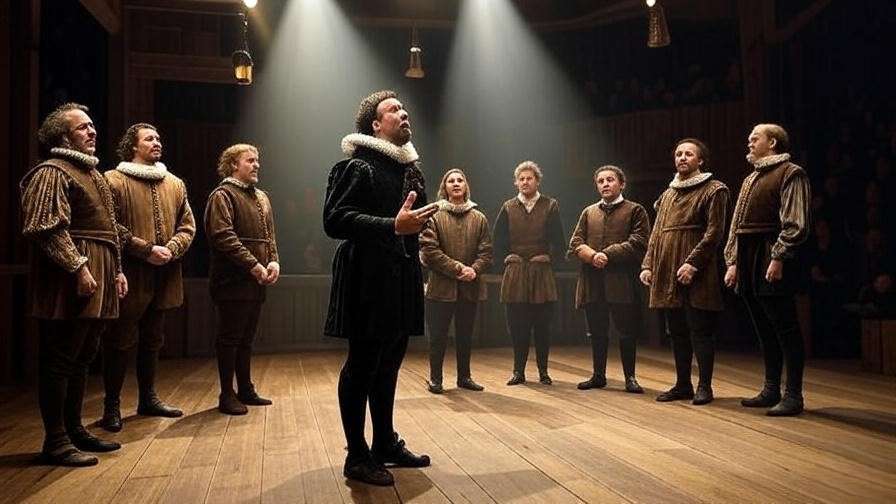
Notable Stage and Film Adaptations
Henry V has inspired countless performances, each reinterpreting its themes for new audiences. Laurence Olivier’s 1944 film, made during World War II, emphasized patriotism to boost British morale. In contrast, Kenneth Branagh’s 1989 adaptation embraced gritty realism, highlighting war’s brutality. Both films showcase the play’s versatility, adapting its tone to reflect their era’s concerns.
Modern stage productions, such as those by the Royal Shakespeare Company, often explore the play’s moral complexities, presenting Henry as a flawed yet inspiring leader. These performances demonstrate why the Henry V book remains a staple of theater.
Modern Interpretations
Recent adaptations, like Netflix’s The King (2019), reimagine Henry V for contemporary audiences. Starring Timothée Chalamet, the film focuses on Henry’s psychological struggles, downplaying the play’s patriotic fervor. While it deviates from Shakespeare’s text, it introduces the story to new readers, encouraging them to explore the original Henry V book.
Readers can engage with these adaptations by streaming films or attending local theater productions. For example, checking platforms like Kanopy or BBC iPlayer for Branagh’s film or searching for upcoming RSC performances can deepen one’s appreciation of the play.
Why Read the Henry V Book Today?
Lessons for Modern Readers
The Henry V book offers practical lessons for today’s readers. Leaders can draw inspiration from Henry’s ability to motivate diverse groups, as seen in his speeches. The play’s ethical dilemmas, such as the morality of war, resonate with discussions of modern conflicts, from geopolitical tensions to humanitarian crises. Additionally, its exploration of national identity speaks to ongoing debates about unity in diverse societies.
For students, Henry V provides a window into Shakespeare’s craft and Elizabethan history, enhancing critical thinking and literary analysis skills. Its universal themes make it a valuable read for anyone interested in human nature and society.
Tips for Reading and Understanding Henry V
First-time readers may find Shakespeare’s language daunting, but these tips can help:
- Use Annotated Editions: Resources like the Folger Shakespeare Library or Arden Shakespeare provide glossaries and notes to clarify archaic terms.
- Focus on Key Speeches: Start with the “St. Crispin’s Day” and “Once more unto the breach” speeches to grasp the play’s emotional core.
- Pair with Performances: Watching Branagh’s or Olivier’s film adaptations can bring the text to life.
- Analyze a Monologue: Choose a passage, like Henry’s soliloquy on kingship (Act 4, Scene 1), and break down its themes and language for deeper insight.
Recommended resources include the Folger Shakespeare Library’s online texts, JSTOR for scholarly articles, and Oxford University Press’s Shakespeare Quarterly for critical essays.
Common Misconceptions and FAQs
Debunking Myths About Henry V
Despite its popularity, the Henry V book is often misunderstood. One common misconception is that it’s purely a patriotic propaganda piece. While the play celebrates English valor, particularly in the triumphant Battle of Agincourt, Shakespeare weaves in moments of critique. For instance, Henry’s ruthless decisions—such as ordering the execution of French prisoners or abandoning his former friend Falstaff—reveal a leader grappling with moral trade-offs. These nuances challenge the view of Henry as an unblemished hero, inviting readers to question simplistic narratives of glory.
Another myth is that Henry V is entirely historically accurate. Shakespeare dramatizes events for effect, compressing timelines and amplifying Henry’s charisma. For example, the historical Battle of Agincourt was a chaotic, muddy affair, not the neatly heroic victory depicted. By comparing the play to sources like Ian Mortimer’s 1415: Henry V’s Year of Glory, readers can appreciate Shakespeare’s artistry while grounding their understanding in fact.
Frequently Asked Questions
Q: Is Henry V historically accurate?
A: The Henry V book blends historical events with dramatic license. While the Battle of Agincourt and Henry’s campaign in France are rooted in history, Shakespeare alters details for narrative impact. For instance, the play simplifies the complex motivations behind the Hundred Years’ War and portrays Henry as a unifying figure, whereas historical accounts show him as a pragmatic, sometimes ruthless ruler. For accurate historical context, readers can consult works like Juliet Barker’s Agincourt: The King, the Campaign, the Battle.
Q: How does Henry V fit into the Henriad?
A: Henry V is the final play in Shakespeare’s Henriad tetralogy, following Richard II, Henry IV, Part 1, and Henry IV, Part 2. The series traces the rise of the House of Lancaster, with Henry V depicting the culmination of Prince Hal’s transformation into a capable king. The play builds on themes of legitimacy, leadership, and redemption introduced earlier, making it essential to read the tetralogy in sequence for full context.
Q: Why is the St. Crispin’s Day speech so famous?
A: The St. Crispin’s Day speech (Act 4, Scene 3) is renowned for its emotional power and rhetorical brilliance. Delivered before the Battle of Agincourt, it transforms a dire situation—England’s outnumbered army—into a moment of unity and purpose. Phrases like “we band of brothers” resonate for their inclusive, motivational tone, making the speech a touchstone for leadership studies and literary analysis. Its universal appeal lies in its ability to inspire courage and camaraderie, applicable to any high-stakes challenge.
Q: What’s the best way to approach reading Henry V?
A: To fully engage with the Henry V book, combine reading with visual and auditory experiences. Start with an annotated edition, such as the Arden Shakespeare or Folger Shakespeare Library, to clarify Elizabethan language. Watch a performance, like Kenneth Branagh’s 1989 film, to see the play’s energy in action. Joining a book club or online discussion group, such as those on Goodreads or Reddit’s r/shakespeare, can also spark deeper insights through shared perspectives.
Shakespeare’s Henry V book is more than a historical drama—it’s a timeless exploration of leadership, morality, and identity that speaks to readers across centuries. From Henry’s stirring speeches to the play’s nuanced portrayal of war’s costs, it offers profound lessons for students, leaders, and literature enthusiasts alike. By delving into its historical context, themes, characters, and adaptations, this guide has aimed to provide a comprehensive resource that enriches your understanding and appreciation of the play.
Whether you’re inspired by Henry’s “band of brothers” ethos or intrigued by the ethical questions he faces, Henry V invites you to reflect on what it means to lead and unite in turbulent times. To deepen your journey, pick up a copy of the Henry V book, attend a local theater production, or stream an adaptation like Branagh’s or Netflix’s The King. Share your favorite quotes or moments in the comments below to join a community of Shakespeare enthusiasts exploring this masterpiece together.


